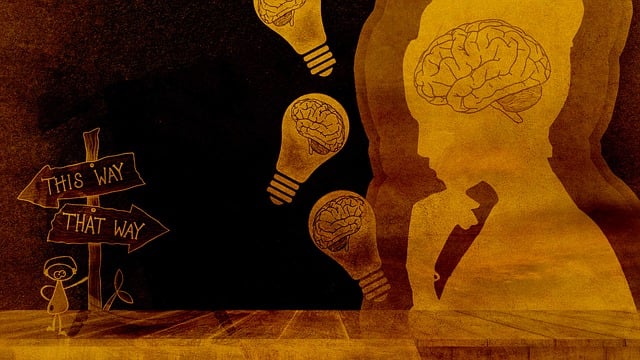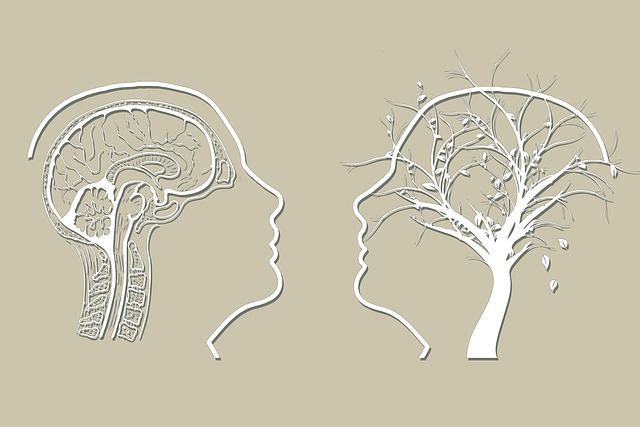Chronic stress can lead to mental health issues like anxiety and depression, highlighting the need for effective management strategies. Lafayette Interpersonal Issues Therapy (LIIT) offers a holistic approach by addressing psychological and social factors, focusing on communication skills, emotional intelligence, and self-awareness. This therapy combines cognitive behavioral techniques (CBT), mindfulness practices, meditation, and journaling to reduce stress, prevent depression, and empower individuals to face life's challenges adaptively. LIIT also emphasizes cultural sensitivity, tailoring care for diverse backgrounds, and integrating lifestyle changes for long-term well-being.
Stress reduction is a vital component of maintaining good mental health. In today’s fast-paced world, understanding how stress impacts our minds and well-being is crucial. This article explores various effective methods to combat stress, from cognitive behavioral techniques to mindfulness practices and lifestyle adjustments. We also delve into the holistic approach offered by Lafayette Interpersonal Issues Therapy, providing readers with comprehensive tools for long-term stress management and improved mental resilience.
- Understanding Stress and Its Impact on Mental Health
- Lafayette Interpersonal Issues Therapy: A Holistic Approach to Stress Reduction
- Cognitive Behavioral Techniques for Managing Stress
- Mindfulness and Meditation Practices for Daily Calm
- Lifestyle Changes for Long-Term Stress Management
Understanding Stress and Its Impact on Mental Health

Stress is a natural response to challenging situations, but when it becomes chronic, it can significantly impact mental health. It’s essential to recognize that stress isn’t always negative; acute or short-term stress can be beneficial, triggering a ‘fight or flight’ response that helps us react quickly to dangers. However, prolonged stress without resolution can lead to various mental health issues, including anxiety, depression, and even physical ailments. This is where Lafayette Interpersonal Issues Therapy steps in as a powerful tool for navigating these challenges.
Understanding the root causes of stress is crucial for effective management. Many factors contribute to stress, such as work pressures, financial worries, relationship difficulties, or past traumatic experiences. Incorporating strategies like mindfulness, exercise, and social support can aid in stress reduction. Moreover, cultural sensitivity in mental healthcare practice plays a vital role, ensuring that individuals from diverse backgrounds receive tailored care that respects their unique needs and experiences, including those seeking depression prevention or trauma support services.
Lafayette Interpersonal Issues Therapy: A Holistic Approach to Stress Reduction

Lafayette Interpersonal Issues Therapy (LIIT) offers a holistic approach to stress reduction, addressing both psychological and social factors that contribute to an individual’s overall well-being. This therapeutic method recognizes that interpersonal relationships play a significant role in our mental health. By focusing on communication strategies and emotional intelligence, LIIT helps individuals navigate and resolve conflicts, build stronger connections, and enhance their problem-solving skills.
Through this approach, clients develop effective coping mechanisms to manage stress, anxiety relief becomes more attainable, and they gain insights into their emotional patterns. The therapy encourages self-awareness, fostering an environment where individuals can express themselves freely, improve their relationships, and make meaningful changes in their lives. LIIT’s comprehensive strategy ensures that stress reduction is not just a temporary fix but a lasting transformation.
Cognitive Behavioral Techniques for Managing Stress

Cognitive Behavioral Techniques (CBT) offer a powerful set of tools for managing stress and improving mental well-being. This therapeutic approach focuses on identifying and changing negative thought patterns and behaviors that contribute to stress and anxiety. By challenging distorted thinking, individuals can gain a more balanced perspective, leading to reduced stress levels. For instance, Lafayette Interpersonal Issues Therapy employs CBT strategies to help clients navigate through complex personal relationships, fostering healthier coping mechanisms.
One of the key strengths of CBT lies in its ability to enhance self-awareness and build confidence. Through structured exercises and guided practice, individuals learn to recognize triggers and develop effective stress management strategies tailored to their unique needs. Moreover, cultural sensitivity in mental healthcare practice is integral to CBT, ensuring that therapeutic interventions are adaptable and inclusive for a diverse range of clients, including those from different ethnic backgrounds or with specific cultural considerations. This approach not only promotes better stress reduction but also aids in preventing issues like depression by empowering individuals with the skills to navigate life’s challenges more adaptively.
Mindfulness and Meditation Practices for Daily Calm

Mindfulness and meditation are powerful tools for daily calm and stress reduction. Practices like mindfulness encourage individuals to focus on the present moment, acknowledging their thoughts and feelings without judgment. This conscious awareness can help break the cycle of intrusive thoughts and anxiety often associated with interpersonal issues, as explored in Lafayette Interpersonal Issues Therapy. By cultivating mindfulness, one can enhance emotional regulation and improve overall well-being.
Meditation complements this process by providing structured moments for introspection and relaxation. It encourages individuals to quiet their minds and observe their breath, fostering a sense of inner peace. Incorporating meditation into a self-care routine development for better mental health can significantly aid in mood management. Additionally, journaling exercises focused on mental wellness can provide valuable insight and serve as a creative outlet for processing emotions, making it an essential component of any stress reduction method.
Lifestyle Changes for Long-Term Stress Management

Adopting a healthy lifestyle is a powerful tool for long-term stress management. This involves making conscious decisions about your daily habits and routine. Regular exercise, for instance, plays a pivotal role in reducing stress levels by releasing endorphins, which act as natural mood lifters. Additionally, prioritizing quality sleep allows the body to rejuvenate, enhancing resilience against stressors. A balanced diet, rich in nutrients, supports overall well-being, contributing to better stress coping mechanisms.
Seeking professional guidance from a healthcare provider or therapist, such as Lafayette Interpersonal Issues Therapy, can be transformative. They offer tailored strategies and support for managing stress, addressing underlying issues, and fostering resilience. Incorporating mindfulness practices, like meditation or deep breathing exercises, allows individuals to cultivate a sense of calm and perspective, effectively navigating life’s challenges. Together with trauma support services and cultural competency training for healthcare providers, these lifestyle changes create a comprehensive approach to well-being.
Stress reduction is a multifaceted journey, encompassing both therapeutic approaches and lifestyle shifts. As discussed, understanding stress and its mental health implications is the first step towards managing it effectively. Techniques such as Lafayette Interpersonal Issues Therapy offer holistic solutions, addressing underlying issues for lasting relief. Cognitive Behavioral Techniques (CBT) provide practical tools to manage stressors, while mindfulness practices cultivate calmness in the present moment. Ultimately, integrating lifestyle changes ensures long-term stress management, promoting overall well-being.














